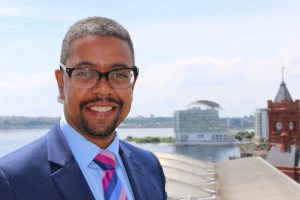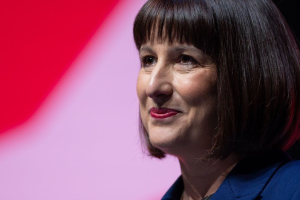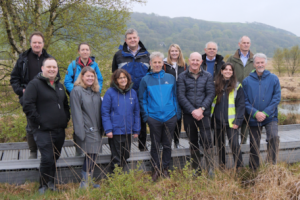‘A WASTE OF MONEY’. That’s how a hard-hitting report from Audit Wales described how local authorities, the Welsh Government, and other public bodies deal with rough-sleeping.
Audit Wales is the body which checks how public money is spent and advises the Welsh Government and other public bodies on how to make sure they get value for money.
The Audit Wales reports says that the public sector spends up to £210m reacting to rough sleeping, rather than preventing it and dealing with its causes.
Audit Wales do not say, however, that spending to tackle rough sleeping is a waste of public money. Instead, Audit Wales says the money is spent on faulty strategies which react to the problem, don’t deal with it proactively, and fail to provide good outcomes for those sleeping rough.
It says the COVID-19 pandemic is an opportunity for public bodies to start addressing weaknesses in partnership working to help tackle rough sleeping.
ROUGH SLEEPING A ‘REVOLVING DOOR’
Audit Wales’ report found, although many public bodies work with people sleeping rough, services were not always joined up and helping people when they needed it.
It found many examples of people being assisted off the streets and into temporary accommodation. Once in temporary accommodation, they did not, however, get the support they needed to address the root causes of their homelessness and often ended up back where they started.
The true extent of people sleeping rough in Wales each year is unknown.
Drawing on information from specialist charities who work with people sleeping rough, there are roughly 3,000 incidences of rough sleeping every year.
The most recent data published by the Welsh Government show the number of people sleeping rough was continuing to rise before the pandemic, increasing by 17% between November 2018 and November 2019.
Audit Wales’ research shows that people sleeping rough in later life have often experienced domestic or sexual abuse, substance misuse, been abused at home, had difficulties in school or lived in poverty from a young age.
To end rough sleeping, solutions need to address both accommodation and support needs and requires many public bodies – including, councils, the Police, health bodies, housing associations, and others – to change how they work and what they do to tackle rough sleeping.
Audit Wales says the key to tackling this problem is for public bodies to deliver a single public service response targeted at people sleeping rough.
To support that step, Audit Wales included in its report a self-reflection tool for public bodies to use to improve how they can jointly address complex needs in the future.
TIME TO ADDRESS THE ROOT CAUSES
Adrian Crompton, the Auditor General for Wales, said: “There has been a real change and emphasis on rough sleeping since the pandemic hit, with public services stepping up to help people off the streets into accommodation.
“Public services now need to capitalise on this work and deliver longer-term solutions to end people sleeping on our streets.
“I believe that for the first time in a generation, eliminating rough sleeping in Wales is a possibility. Our report sets out how we can all work towards this goal.
“Public bodies must not just focus on giving people a roof over their head, it needs all partners to work together to address the root causes of homelessness.
Frances Beecher, CEO of Llamau and Chair of End Youth Homelessness Cymru, who was a member of the Homelessness Action Group, welcomed Audit Wales’ report.
“For too long we have known that the root causes of homelessness stem from traumatic and adverse experiences in childhood.
“It is crucial that we build on the work we have done to support people sleeping rough during the Covid19 pandemic, and invest in integrated services which intervene early to prevent homelessness, rather than waiting until people reach a crisis point in their lives.
“Ending homelessness is everyone’s responsibility and if we all work together, I truly believe we have a huge opportunity to create a Wales without homelessness.”
‘A FRAGMENTED SYSTEM’
Plaid Cymru’s Shadow Minister for Transforming Public Services, Delyth Jewell MS, said: “Homelessness is the predictable consequence of years of cuts to social security, a failure to build social housing, and the continued refusal of the Welsh Government to make the necessary legislative changes such as ending priority need to ensure everyone is entitled to support when they present as homeless.
“I welcome the report from the Auditor General for Wales, which highlights the long-standing weaknesses that come from a fragmented system. However, the pandemic has revealed that when there is a will, there is a way to end homelessness. The Welsh Government’s lack of ability to effectively tackle rough sleeping before the pandemic must now be seriously called into question – they can no longer blame their lack of action on austerity, but an utter lack of will to deal with the problem in hand.
“Plaid Cymru believes that no society can legitimately call itself civilised if a person must sleep on the street. Above all, tackling this problem is a question of political will.”
FINDINGS ARE ‘A SCANDAL’
Mark Isherwood MS – the Conservative’s Shadow Minister for Local Government and Housing – said: “This is nothing short of a scandal.
“In the words of the report’s authors, some £209 million is wasted annually by the public sector reacting to, rather than preventing, rough sleeping. The report also found that services were not always joined up and people were not being helped when they needed it.
“Cited, too, were ‘many examples’ of a ‘revolving door’ for service users who were assisted off the streets and into temporary accommodation, but without the necessary support to address the root causes of their homelessness, and who often ended up back where they started.
“The crisis caused by the Covid-19 pandemic was an opportunity for public bodies to start addressing weaknesses in partnership working to help tackle rough sleeping.
“It is now crucial that the Welsh Government publishes what it will do to help homeless people once the current lockdown is eased.”
GOVERNMENT MUST BUILD ON COVID EXPERIENCE
The Chair of the Senedd’s Equality, Local Government and Communities, John Griffiths MS, commented: “This Committee has prioritised homelessness and rough sleeping. We have taken evidence and produced detailed reports with recommendations to tackle the issues involved.
“Only last week, we heard about the live challenges facing individuals experiencing or at risk of homelessness, including those sleeping rough, and the pressures on those services that provide support. We also heard about the monumental effort being made by all partners, within local authorities and the third sector to get people off the streets at the height of the pandemic. What has been achieved is significant and impressive, and we hope that this can be built upon to meet the Welsh Government’s aim of making homelessness rare, brief and unrepeated.
“I welcome the Auditor General’s report and echo his call for public services to capitalise on their response to the COVID-19 crisis through a step-change in approach, shifting resources to focus on prevention.
“Looming economic challenges that could otherwise drive more homelessness and rough sleeping make this all the more important. We will continue to hold the Welsh Government to account on this important issue in the coming months, and this report will help inform our scrutiny.”
At the outbreak of the COVID-19 pandemic, the Welsh Government and councils moved quickly to provide accommodation to rough sleepers and those in unsuitable accommodation.
Housing Minister Julie James MS said: “Getting over 800 people off the streets or away from unsuitable accommodation has not been easy but by working together we have made a big difference to the lives of these people.
“This does not, however, mean we have resolved homelessness in Wales. We have achieved a reprieve, but it remains our goal to end homelessness and we will not see people forced back onto the streets.”
THE PROBLEM WITH NIMBYS
Even with the best will in the world, local authorities, the Welsh Government and other bodies face a massive struggle to end the scourge of homelessness and rough sleeping.
In 2014, Carmarthenshire’s Planning Committee rejected plans to convert a residence n Carmarthen to house homeless armed forces veterans.
The Planning Inspectorate overturned the rejection in 2015. However, the charity behind the application decided not to proceed with the plan because of continuing hostility from those determined to house the homeless anywhere but near their properties.
During the COVID-19 pandemic, locals have complained about the use of the Silverdale Lodge, Johnston, as temporary accommodation for those made homeless by the pandemic or for rough sleepers placed there as part of controls for COVID-19’s spread.
Similar complaints have been made about a property in Fishguard which is also being used as temporary accommodation for the homeless during the COVID pandemic.
As always, the local rumour mill churns about properties being used as bail hostels or halfway houses.
While most people regard homelessness and rough sleeping as preventable tragedies, it appears that a large majority want them prevented as far away from them as possible.
















